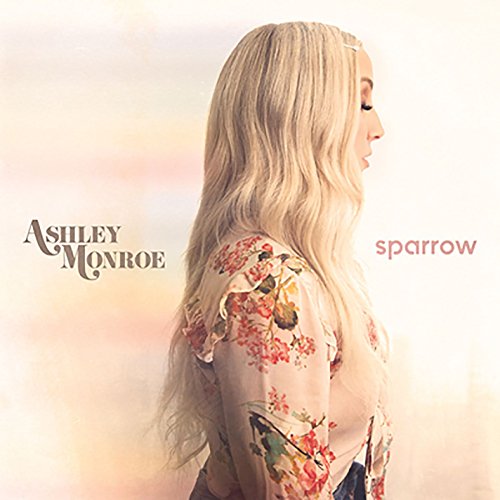
Ashley Monroe
Sparrow
Release Date: Apr 20, 2018
Genre(s): Country
Record label: Warner Bros.
Music Critic Score
How the Music Critic Score works
Buy Sparrow from Amazon
Album Review: Sparrow by Ashley Monroe
Exceptionally Good, Based on 4 Critics
Based on rating 9/10
Sparrow comes on slowly, almost stately, unfolding with a deliberate crawl of piano and strings that instantly separates it from Ashley Monroe's first two albums. It's a sign that Monroe has changed producers, switching from her longtime supporter Vince Gill to Dave Cobb, the hottest producer in Nashville in the back half of the 2010s. Part of Cobb's strength is allowing artists to explore within the confines of a commercially appealing production, and that's precisely what Sparrow is: soul-baring songs given a sumptuous treatment.
Based on rating 8.9/10
As her career has progressed, singer-songwriter Ashley Monroe has been able to move farther and farther away from the standard Nashville plot. Some of that is due to the success that she has accrued through her association with her buddies Miranda Lambert and Angaleena Presley in the Pistol Annies and her other friend Jack White, with whom she performed as part of his house band for a few years. But as her songwriting has gained strength and her commercial prospects have gotten brighter, her albums have shed many of the recognizable names that would hopefully pique the interest of curious listeners.
Based on rating 4.0/5
Family matters, and family as a source of conflicting emotions, loom large over Ashley Monroe's Sparrow. The singer-songwriter's fourth album reckons with tangled genealogies and troubled pasts; throughout, Monroe's characters grieve their losses, count their scars, and try to heal. Working with producer Dave Cobb, Monroe has created a sonic palette to help translate those vivid feelings into expressive, visceral music.
Opinion: Excellent
The sturdy 14½ " x 14½" x 3½" hinged and burn-engraved wooden box enclosing vinyl Ashley Monroe album, CD, ¾-sleeve sweatshirt, and press kit that Warner Nashville sent out in 2013 may or may not go down in history as the last great ridiculous swag item mailed to susceptible tastemakers before record companies opted to drastically cut back on pre-email publicity stunts. That it was used to promote Like a Rose -Monroe's second album, and to my ears still her wittiest, most energetic and best--may just mean I took the bait, but I don't think so. Since then, she's avoided rib-ticklers like "Weed Instead of Roses," "You Ain't Dolly (and You Ain't Porter)" and the devastatingly broke and pregnant "Two Weeks Late," not to mention rip-roarers like "Monroe Suede," and gravitated almost entirely toward the sad songs that she'd always said came naturally, and that in fact had dominated her barely released and rarely heard but totally moving 2006 teenage debut Satisfied in the first place.
'Sparrow'
is available now

